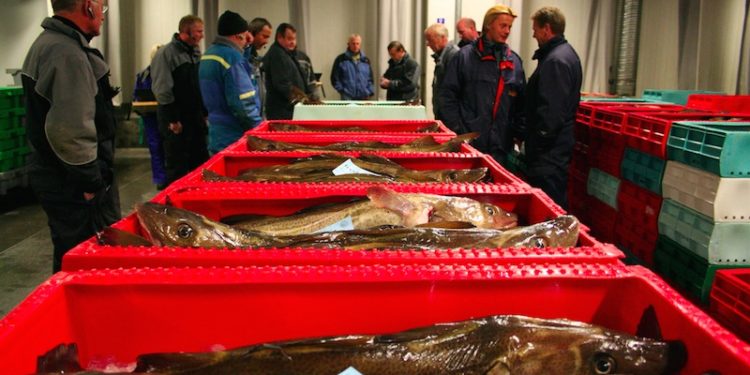Danish PO Danmarks Fiskeriforening is appalled that the EU Commission has decided to follow the recommendations for western Baltic cod quota without taking into account fishermen’s arguments, predicting a death knell for the fishery if the proposal is adopted at the Council meeting in October.
The Danish Baltic fishermen have made strenuous efforts to get the European Commission to understand that there will be extremely serious consequences for mainly small-scale fisheries in the Western Baltic. The fishing sector can expect to lose up to 90% of the current quota of cod in the western Baltic in 2017, in addition, a reduction of 39% of quota in the eastern Baltic.
‘That in itself will be a disaster if the cod quota is depleted to 10% of the current quota in the western Baltic. But it is equally a scandal that the EU Commission ignores all experts warnings that this will lead to the closure of the fishery across the Baltic from Bornholm in the east of Jutland in the west,’ said PO chairman Svend-Erik Andersen.
Two reports have been presented demonstrating the fatal consequences slashing the cod quota will have on fisheries and the many fishing ports in the western Baltic, while the PO had proposed a 20% reduction in the western Baltic cod quota, reasoning that the stock is not endangered and this reduction would allow the cod stock to continue to grow.
Speaking on Danish TV this week, Marie Storr-Paulsen, head of section for monitoring and data at the Technical University of Denmark (DTU Aqua) commented that the cod stock is not in a state of crisis and not in danger of collapse.
She said that the sharp reduction demanded by the European Commission is a political decision, with politically determined targets that have to be met for the western Baltic cod stock to reach a certain level. She added that the stock’s main problem is one of recruitment, denying that fishing effort alone is the reason for the present state of the cod stock.
She told P1 that temperature and climate may have a significant impact, as have pollution and feed availability, and that there are many other factors than fishing that contribute to the situation.
‘Smaller vessels are tied to their local waters and can not switch to other waters. At the same time, it is also impossible for them to go into other fisheries in their local waters, because they will get cod as by-catch. So they can actually look forward to being tied up for a large part of the year,’ explained PO vice-president Kim Kær Hansen.
In addition to the severe reduction in the cod quota in the western Baltic, there is also a proposal to maintain the controversial spring closure from 1st February to 1st April.
The EU Commission admits the it intends to protect cod stocks in the western Baltic only by reducing quotas for commercial fishermen, while anglers remain unrestricted, as the Commission has no powers to propose restrictions on recreational fishing. The German recreational catch in the western Baltic is estimated at 2500 tonnes of cod per year, and the PO points out that this means that recreational fishing levels will end up being almost twice the size of the commercial catch in 2017.
‘The Danish Fishermen’s PO will work hard to get politicians both in Denmark and other member states to listen to reason. If they want a commercial fishing in the Baltic Sea, this is the moment to give fishermen the fish they need to survive,’ said Svend-Erik Andersen.









